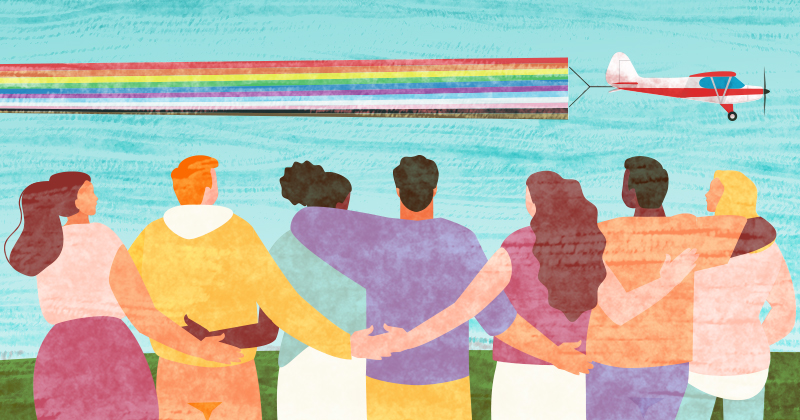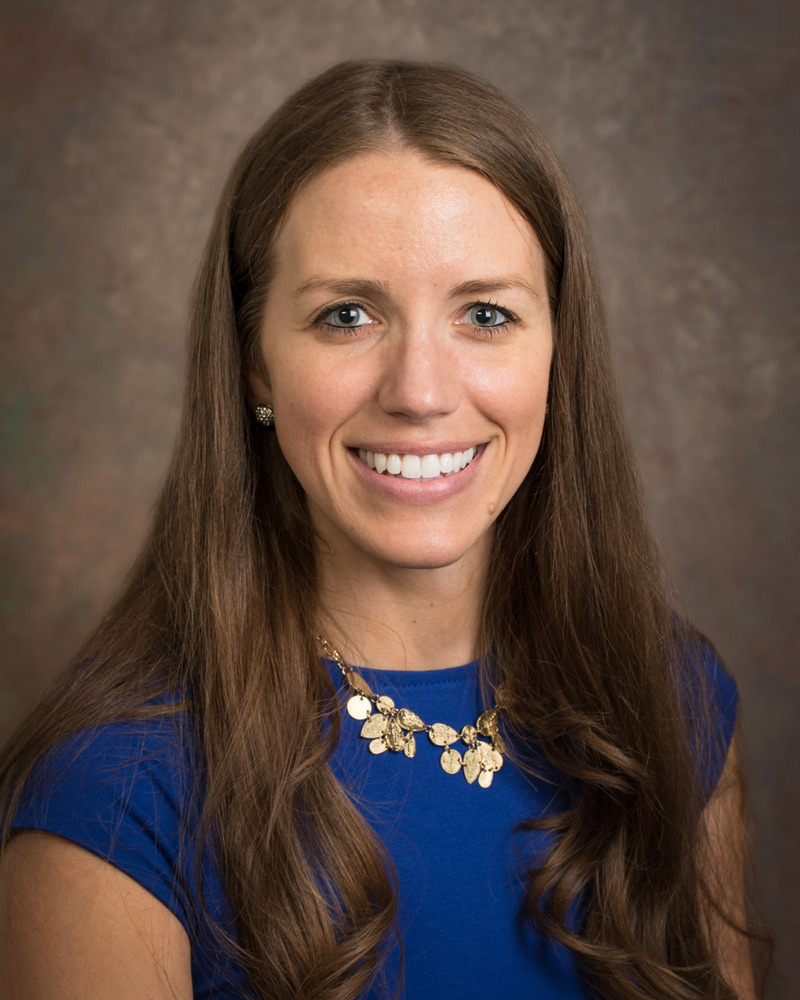


Creating Safe Spaces for LGBTQ+ Youth
Illustration by Jeffrey C. Chase. Photos by Maria Errico. October 10, 2025
University of Delaware Assistant Professors Eric Layland and Brittany Zakszeski share guidance for parents, teachers and school leaders
During adolescence—a period defined by rapid physical, emotional and social development—LGBTQ+ youth often grapple with the decision to “come out” to their family or friends and disclose their gender and/or sexual identities. As University of Delaware research has shown, many LGBTQ+ young people avoid coming out, fearing rejection, social isolation and homophobic or transphobic aggression.
In recognition of National Coming Out Day, we spoke with UD Assistant Professors Eric Layland and Brittany Zakszeski, who study affirmative interventions for LGBTQ+ youth and school psychology in the College of Education and Human Development. They shared guidance and resources for parents, teachers and school leaders in supporting LGBTQ+ youth in the coming out process and fostering their well-being.
What can family members and friends do to support a young person in the coming out process?
Layland: As youth grow up, it is normal and healthy for them to explore many dimensions of their identities. No matter how they end up identifying, supporting their autonomy to explore and understand themselves can be very empowering, signaling to youth that they have loving, consistent support. Family, friends and teachers can create safe environments for LGBTQ+ youth to be authentically themselves by demonstrating their support for other LGBTQ+ people, by discussing gender and sexuality openly and with a willingness to listen, by trusting adolescents to know themselves and by validating adolescents when they express their identity, even if that identity changes later.
Zakszeski: Families can play an important role in supporting youth’s well-being across contexts by building open communication with school staff and mental health professionals—while ensuring disclosure decisions remain in their youth’s hands. Reaching out to school psychologists or other school staff can help families access resources, guidance and strategies to better understand and affirm their teen’s identity. For example, some LGBTQ+ youth may benefit from practicing communication strategies, discussing safety considerations, learning new coping strategies and exploring community resources with the support of a school psychologist. Families can also collaborate with schools to ensure supportive environments, such as inclusive policies, safe spaces and connections to peer groups.
Both of you have already mentioned teachers and school staff. Why do schools have the unique potential to be important sites of support for LGBTQ+ youth?

Layland: Schools provide an environment where LGBTQ+ youth may explore and express their identities even when they feel they cannot do so at home. Gender and Sexuality Alliances (GSA) at schools provide safe social spaces for LGBTQ+ youth to gather, and GSAs are consistently linked to better mental health and academic performance for LGBTQ+ youth. LGBTQ+ youth also frequently identify teachers as a group that has a positive impact on their identity. They often point to teachers who speak and teach inclusively on LGBTQ+ topics, who encourage students to be themselves and who act as authentic LGBTQ+ role models.
Zakszeski: Schools are adolescents’ primary developmental contexts, where they generally spend their most waking hours. As Eric mentioned, they can provide access to supportive peers and adults and also foster youth’s sense of safety, belonging and well-being through an inclusive climate and affirmative programming. In fact, schools are the most common mental health service delivery setting for youth. Unlike other service delivery settings, schools reach nearly all youth, regardless of their sociodemographic background. For LGBTQ+ youth, among whom rates of anxiety, depression and suicidal ideation are particularly high, schools may be a valuable source of social-emotional support.
What kinds of school-based interventions are helpful in supporting LGBTQ+ youth?
Layland: To eliminate health disparities for LGBTQ+ youth, targeted and tailored intervention can be particularly effective. For example, Proud & Empowered is a school-based program with sessions for both LGBTQ+ youth and their peer allies that aims at reducing health disparities by improving skills for coping with prejudice and stress. Additionally, bystander interventions—when a witness or “bystander” interrupts or challenges a harmful interaction—can be effective ways to increase allyship both in teachers and peers to be able to identify LGBTQ-based bullying and step in to prevent harm. Finally, LGBTQ-inclusive curriculum can allow LGBTQ+ youth to see themselves represented in school subjects and contribute to a better overall school climate.

Zakszeski: Without a positive and supportive school climate, the effects of any tailored intervention are limited. A positive and supportive school climate for LGBTQ+ youth can only be fostered by comprehensive school cultural changes in which system policies and practices are aligned to affirm and protect LGBTQ+ youth. This includes, for example, implementing and consistently enforcing inclusive and anti-discrimination policies, training all school staff to be active allies to LGBTQ+ youth and collecting school climate data and using such data to improve school support systems.
Resources for UD students
UD’s Office of Student Diversity and Inclusion offers many resources for students and UD community members, including community-building programs, gender-inclusive housing, gender-affirming care resources and LGBTQ+ education workshops. UD’s Student Health Services also ensures that all genders, gender identities and sexual orientations have access to healthcare that meets their individual needs.
The LGBTQ+ Group at Sean’s House is a structured and supportive environment that creates the emotional safety needed to discuss and reflect on a variety of topics surrounding mental health in the LGBTQ+ community. This group is facilitated by an LGBTQ+ identifying, trauma-informed therapist and is held on the 4th Wednesday of every month. Students may also consider joining the Lavender Programming Board, the Queer and Trans Graduate Student Union or other student organizations.
Contact Us
Have a UDaily story idea?
Contact us at ocm@udel.edu
Members of the press
Contact us at mediarelations@udel.edu or visit the Media Relations website

